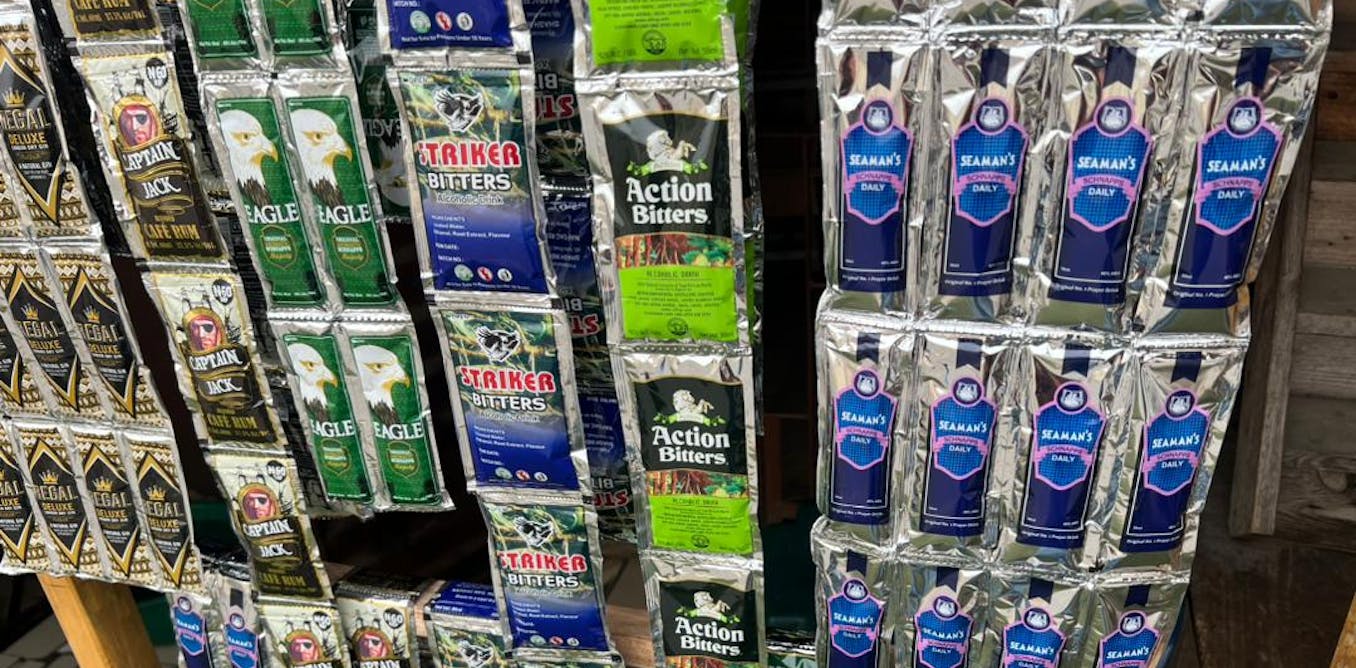Now Reading: Nigeria Split as Government Moves to Enforce Ban on Sachet Alcohol by December 2025
-
01
Nigeria Split as Government Moves to Enforce Ban on Sachet Alcohol by December 2025
Nigeria Split as Government Moves to Enforce Ban on Sachet Alcohol by December 2025

A renewed push by the Nigerian government to halt the production and sale of sachet alcohol and small-bottle spirits has triggered a wave of mixed reactions across the country, as health regulators insist the move is long overdue while traders and consumers warn it will worsen hardship.
The debate resurfaced after the Senate last week directed the National Agency for Food and Drug Administration and Control (NAFDAC) not to extend the December 31, 2025 deadline for phasing out alcoholic drinks packaged in sachets and bottles below 200ml.
The resolution followed a motion by Cross River South senator Asuquo Ekpenyong, who argued that the ban aligns with global health standards and is essential to curb alcohol-related harm, especially among young Nigerians.
Ekpenyong reminded lawmakers that in 2018, the Federal Ministry of Health, NAFDAC, the FCCPC and industry groups signed a five-year agreement to gradually eliminate the products, before an additional one-year moratorium was granted in 2024 to allow manufacturers exhaust existing stock.
But he warned that producers were pressuring regulators for yet another extension — a move he said would undermine public health and place compliant manufacturers at a disadvantage.
“We cannot continue to expose our youths to cheap, easily accessible alcohol that destroys lives and endangers public safety,” he told colleagues.
Lawmakers backing the motion described the products as a major contributor to addiction, impaired cognitive development, domestic violence and road crashes involving commercial drivers.
Senate President Godswill Akpabio ruled that NAFDAC must ensure full enforcement of the ban, insisting that allowing sachet alcohol to remain in circulation would weaken Nigeria’s anti-substance abuse efforts.
Following the Senate directive, NAFDAC reaffirmed that its enforcement will begin next month. Director-General Prof. Mojisola Adeyeye said the agency is acting under its legal mandate to protect children, adolescents and vulnerable groups from the dangers of high-strength alcoholic drinks packaged in forms that are cheap, portable and easily concealed.
Calling sachet spirits a “public health menace”, Adeyeye said their proliferation has been linked to rising cases of addiction, domestic violence, school dropouts and road accidents.
“This ban is not punitive but protective. We cannot sacrifice the well-being of Nigerians for short-term economic gain,” she said.
She clarified that only two categories are affected: spirit drinks in sachets and small bottles below 200ml.
While government agencies insist they are acting in the public interest, producers, wholesalers and retailers describe the ban as a direct attack on their livelihoods.
Bukola Jaiyeloba, who sells drinks in sachets and mini bottles, said the decision will cripple small businesses and deprive low-income Nigerians of an affordable product.
“Those who started producing sachets were thinking of the ordinary man. Now they want to take that away,” she said.
“It will push people out of business. We are pleading with the government to reconsider.”
At popular drinking spots in Lagos, many consumers see the policy as another blow to the poor. Some argue that drugs such as marijuana and synthetic substances are openly abused while the government focuses on banning cheap alcohol.
A regular at Mile 2 expressed frustration:
“They say it causes health problems, but is it not the same drink inside the big bottles?
People smoke drugs openly in Lagos and nobody arrests them. But it is sachet drinks they want to take away.”
He insists the poor will “always find a way to survive”, even if they must now pool money to buy larger bottles and share among themselves.
The clash between public health advocates and those defending their means of livelihood highlights Nigeria’s ongoing struggle to regulate harmful consumption without worsening poverty in a fragile economy.
For now, the government remains firm: sachet alcohol must disappear from shelves by December 2025 — and there will be no further extensions.




